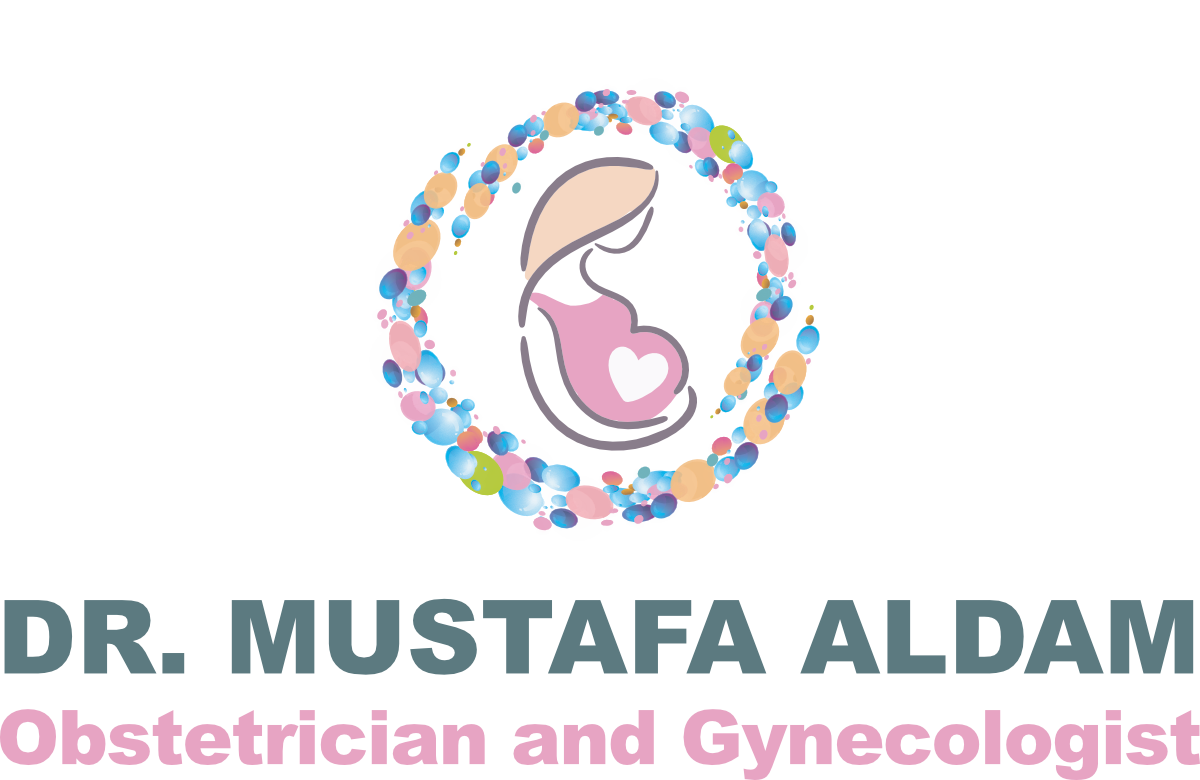Heavy Periods: What’s Normal and When to See a Doctor

For every woman, her menstrual cycle is simply part of being healthy. However, when the bleeding becomes heavy and lasts longer than usual, there may be a medical condition associated with it. This condition is called menorrhagia, and it affects many women who are in their reproductive years. While slight differences in menstrual flow are a common occurrence, heavy periods or periods with heavy bleeding can affect daily life and leave you feeling tired, or raise concerns about your hormonal or uterine health. Knowing the cause of heavy periods is important to help you figure out when to seek help and what menorrhagia treatments in dubai could be offered.
Dr. Mustafa Aldam, a certified obstetrician and gynecologist with more than 20 years of experience, offers individualized menorrhagia treatment in dubai and holistic care for women who have menorrhagia and similar disorders, at Healia Medical Center in Dubai.
Understanding Menorrhagia and Heavy Periods
The term menorrhagia refers to abnormally heavy or prolonged menstrual bleeding. Women with menorrhagia may experience blood loss that soaks through one or more tampons or sanitary pads once an hour for several hours in a row. Some may pass large blood clots or bleed for longer than seven days.
It’s important to remember that heavy periods are not always a sign of something serious. For some women, heavier flow can occur during hormonal changes such as puberty or perimenopause. However, persistent heavy bleeding periods can lead to anemia, fatigue and other health complications, so professional evaluation is essential.
What’s Considered Normal and What’s Not
Every woman’s menstrual pattern is unique, but understanding what’s typical helps you recognize when something may be off.
A normal menstrual cycle usually includes:
- Bleeding lasting 3 to 7 days
- Total blood loss of 30 to 80 milliliters (about 2–6 tablespoons)
- Regular cycles every 21 to 35 days
Signs that your period may be abnormally heavy include:
- Changing pads or tampons every hour or less
- Needing to use double protection (pad + tampon)
- Passing blood clots larger than a coin
- Waking up at night to change protection
- Bleeding lasting longer than seven days
- Feeling dizzy, weak or unusually tired
If you experience these symptoms, it’s time to consult a specialist such as Dr. Mustafa Aldam, who offers personalized menorrhagia treatment in Dubai.
Common Causes of Heavy Periods

Understanding the cause of heavy periods is key to determining the right course of menorrhagia treatment. Menorrhagia can result from various conditions affecting the uterus, hormones or overall health.
1. Hormonal Imbalances
Progesterone and estrogen control the accumulation of the uterine lining each month. When these hormones are imbalanced, often during adolescence, perimenopause or due to medical conditions, the uterine lining may thicken excessively, leading to heavy bleeding periods.
2. Uterine Fibroids or Polyps
Uterine growths that are not cancerous, commonly referred to as fibroids or polyps are a common cause of heavy periods. They can distort the uterine lining and increase bleeding and cramping.
3. Adenomyosis
In this condition, the uterine lining expands into the muscle wall, resulting in discomfort and extremely painful periods along with heavy bleeding.
4. Bleeding Disorders
Some women have inherited blood-clotting disorders, such as von Willebrand disease, that make it difficult for blood to clot properly resulting in prolonged or excessive bleeding.
5. Intrauterine Devices (IUDs)
Certain non-hormonal IUDs, especially copper-based ones, can trigger heavy bleeding periods during the initial months of use.
6. Thyroid or Other Medical Conditions
Thyroid imbalances, liver disorders or kidney diseases can also disrupt menstrual regularity and contribute to menorrhagia.
7. Endometrial or Cervical Conditions
Abnormalities in the uterus or cervix, including infections, precancerous changes or endometrial hyperplasia, can be another cause of heavy periods.
If you experience persistent, extremely painful periods or prolonged bleeding, it’s important to undergo a detailed evaluation to determine the exact cause.
When to See a Doctor for Heavy Periods
Experiencing occasional changes with your flow may be expected and normal; however consider contacting a gynecologist if:
- Your bleeding soaks through a pad or tampon every hour
- You are passing large clots on a regular basis
- You have a period that lasts longer than seven days
- You have extremely painful periods or severe cramps
- You may feel dizzy or fatigued from blood loss
- Irregular cycles along with spotting in between cycles
Dr. Mustafa Aldam emphasizes that early diagnosis helps prevent complications such as anemia and allows effective menorrhagia treatment in Dubai tailored to your specific needs.
Diagnosing Menorrhagia
To find the cause of heavy periods, your physician will do a comprehensive assessment, which could involve:
- Medical History Review: Discussing menstrual patterns, symptoms and family history.
- Pelvic Exam: Checking for abnormalities in the uterus or cervix.
- Blood Tests: Identifying anemia, thyroid issues or bleeding disorders.
- Ultrasound or Hysteroscopy: Imaging tests to look for fibroids, polyps, or structural changes.
- Endometrial Biopsy: Sampling the uterine lining to rule out infection or abnormal cell growth.
These diagnostic steps ensure a precise understanding of your condition and guide appropriate treatment planning.
Effective Menorrhagia Treatment in Dubai
The treatment for menorrhagia depends on its cause, severity and your personal health goals, such as fertility preservation. At Healia Medical Center, Dr. Mustafa Aldam offers several evidence-based options to help women regain balance and comfort.
1. Medication-Based Treatments
- Hormonal Therapy: hormonal IUDs, birth control tablets or progesterone therapy help regulate cycles and reduce bleeding.
- Nonsteroidal Anti-Inflammatory Drugs (NSAIDs): Medications like ibuprofen can ease pain and reduce blood loss.
- Antifibrinolytic Agents: These types of medication help your blood clot better and reduce how long you bleed.
2. Minimally Invasive Options
If the medications do not help, there are multiple minimally invasive options:
- Endometrial ablation: The uterine lining is removed or ablated to stop bleeding.
- Hysteroscopic Removal of Polyps or Fibroids: Aims to remove polyps or fibroids that are responsible for heavy menstrual bleeding.
- Uterine Artery Embolization: Decreases blood flow to the fibroids, decreases their size, and improves bleeding symptoms.
3. Surgical Solutions
For severe or recurring cases, surgery such as hysterectomy, which involves removing the uterus may considered. Women who have finished having children and have not reacted to other treatments are typically the ones who get this.
Dr. Mustafa Aldam tailors every menorrhagia treatment in Dubai to ensure optimal results while preserving reproductive health whenever possible.
Managing Extremely Painful Periods

Many women with menorrhagia also experience extremely painful periods, known as dysmenorrhea. The methods for managing pain include:
- Techniques for relaxation and heat therapy
- Frequent exercise and a healthy diet
- Staying away from too much alcohol and coffee
- Medical treatment with hormone support or prescription painkillers
It’s important to address pain rather than normalize it. Persistent or severe menstrual pain deserves professional care.
Preventing Heavy Periods and Maintaining Reproductive Health
Maintaining a healthy lifestyle helps support hormonal balance and uterine health, even though not all reasons for heavy periods can be prevented.
Basic advice consists of:
- Consuming meals high in iron, such as beans, lean meats and leafy greens, can help avoid anemia.
- Keeping hydrated and controlling your stress
- Setting up routine gynecological examinations
- Tracking your menstrual cycle to detect changes early
If heavy or extremely painful periods disrupt your routine, don’t ignore them. Timely treatment can make a significant change in your quality of life and comfort.
When to Seek Immediate Medical Help
Sometimes, heavy menstrual bleeding can indicate an urgent issue. Seek immediate medical attention if you experience:
- Soaking through multiple pads or tampons in an hour
- Severe dizziness or fainting
- Shortness of breath or extreme weakness
These symptoms could suggest severe anemia or another medical emergency that requires prompt care.
Expert Menorrhagia Treatment in Dubai at Healia Medical Center
Dr. Mustafa Aldam has decades of experience in women’s health and provides accurate diagnosis and effective menorrhagia treatment in Dubai through medical knowledge and advanced diagnostic technology. His approach is centered on the patient, so each woman receives individualized care and continued support through her treatment experience.
If you’re struggling with heavy periods, extremely painful periods or suspect an underlying cause of heavy periods, visit Healia Medical Center in Dubai for expert evaluation and care.
Final Thoughts
Heavy or prolonged menstrual bleeding should never be ignored. While menorrhagia is common, it can significantly impact your health, energy levels and daily life. By learning the signs, knowing when to seek help, and finding effective treatments for menorrhagia in Dubai, you can take control of your menstrual health and overall well-being.
Are you ready to find relief from heavy periods?
Make an appointment with Dr. Mustafa Aldam at Healia Medical Center, Dubai and receive expert advice for long-term relief and balance in menstrual health.
